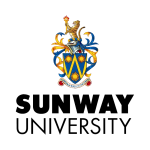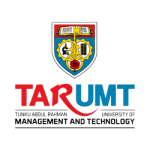
Hybrid courses combine elements of face-to-face classes and online learning. This form of learning is steadily gaining popularity in Malaysia, especially after the pandemic, which forced many universities to move towards providing education on online platforms.
By studying a hybrid programme, students can benefit from the convenience of online resources and the valuable interactions of traditional classrooms.
Different universities may also conduct hybrid learning in various ways. For example, students may have in-person classes two days a week and online lectures on other days. Students may also be able to attend a class on campus or virtually. Lecturers may provide online activities and pre-recorded lectures to complement their face-to-face classes. Open University Malaysia (OUM) offers supplementary face-to-face tutorials for selected courses to students who need them.
This article aims to help you understand what a hybrid course is all about.
Types of hybrid courses in Malaysia
Many hybrid courses are available for students of various educational levels in diverse disciplines. Here are some examples of course areas you can study in a hybrid programme:
- Diplomas: You may find hybrid diploma courses in areas such as management, business management and accounting. These courses usually take two to three years and four months to complete.
- Bachelor’s degrees: There are hybrid bachelor’s programmes in various fields like accounting, finance, international business and more. You can typically finish your studies in three to three and a half years.
- Master’s degrees: Some areas available for study in a hybrid master’s course include project management, corporate governance and investment management. These programmes generally take one to one and a half years to complete.
- Doctorate degrees: As a doctorate student, you can explore hybrid programmes in diverse fields such as business administration and management. The usual study duration of these courses is two to three years.
Some institutions offer part-time hybrid courses, which are ideal for students who cannot commit to full-time study due to their personal or professional obligations. Students may be required to complete an internship or project as part of their curriculum. They may also be assessed with flexible evaluation methods and minimal examinations.
You can explore hybrid courses offered by universities in Malaysia here.
Choosing the right hybrid course
It can be useful to consider several factors before applying for a hybrid course, such as:
- Professional goals: You can narrow down your search once you figure out what you want to do as a career in the long run. This will help you identify what course area is relevant to your interest and what hybrid courses are available in that discipline.
- Course schedule: Since hybrid courses combine traditional and online classes, check the structure of the course, as the percentage of these two learning components usually depends on the course or university. This is important as you can determine if the course fits your preferred schedule.
- Flexibility: You can check if the course provides online access to study materials and class recordings so you can study at your own pace when you’re not on campus. Part-time hybrid courses are also available if your personal schedule fits the study mode better than full-time programmes.
- Accreditation: The course must be accredited by the Malaysian Qualifications Agency (MQA) for it to be recognised by employers and other educational institutions. Depending on your discipline, the course may also be accredited by relevant professional organisations, strengthening its credibility.
- Faculty expertise: Go through the credentials of the course’s lecturers to confirm their expertise. You can learn a lot from lecturers who have years of experience in the industry relevant to your interest.
- Student support: When you’re on campus, you can visit the administration office for guidance. Online learning is usually accompanied by student support services to ensure a positive learning experience for remote students. Check the university you’re aiming to enrol at to see what kind of educational or administrative services they offer.
Top institutions offering hybrid courses
There are institutions nationwide that offer hybrid business courses for undergraduate and postgraduate students. These institutions are ranked according to the QS World University Rankings 2025 for universities in Malaysia in the Asia region.
| UNIVERSITY | PROGRAMME |
|---|---|
| Management & Science University (MSU) |
Master in Business Administration
|
| Asia Pacific University (APU) |
Doctor of Business Administration (DBA)
|
| Universiti Tunku Abdul Rahman (UTAR) |
Master of Business Administration Master of Business Administration (Corporate Management)
|
| Multimedia University (MMU) |
Master of Philosophy (Management) Doctor of Business Administration Doctor of Philosophy (Management)
|
| MILA University |
Diploma in Business Management
Bachelor of Arts (Hons) in Accounting and Finance
Master of Business Administration (MBA)
|
| TAR UMT |
Master of Business Administration Master of Investment Management Master of Accounting and Finance
|
| SEGi University |
Master of Business Administration (Global Business) Master of Business Administration (General Management)
|
| Asia School of Business (ASB) |
Executive MBA
|
FAQs about hybrid courses in Malaysia
Hybrid courses are respected as you will learn the same curriculum as face-to-face courses, regardless of whether you are in a traditional classroom or studying remotely. When you experience learning in these two settings, you can reap additional benefits compared to just one learning format. Studying on-campus improves your collaboration skills with peers while learning virtually increases your self-discipline as you may require extra motivation to complete your assigned tasks. Employers value these skills as they demonstrate your ability to be independent and a team player.
While hybrid courses may share the same syllabus as their traditional counterparts, they are distinct in their delivery method. Classes in face-to-face courses typically take place completely on campus, while students in hybrid programmes may attend lectures in physical classrooms and online spaces. They may also do part of their coursework online to complement what they’ve learned during classes.
Students studying hybrid courses can enjoy the blended advantages of learning in a physical and virtual space. Studying online saves you time from having to travel to your campus every day to attend classes. You can access your study materials anytime if they’re available online.
Communicating with lecturers and coursemates will be easier as you can reach out to them online or approach them on campus. This learning format also allows you to have a campus experience that remote learning lacks. Students with personal and professional commitments can manage their schedules better with the flexibility provided by hybrid programmes.
Hybrid courses are accredited if they are approved by MQA and offered by the higher education institutions recognised by the Malaysian Government. They may also have additional accreditations from other professional bodies such as ACCA, CIMA and CPA. These global recognitions will improve the credibility of your qualification as a graduate.
While there are no scholarships specifically for hybrid courses, you can apply for scholarships offered by your chosen university. Many institutions have scholarships for high-performing achievers and underprivileged students. There’s usually no requirement in their eligibility criteria to study one particular study mode, unless stated otherwise.
You can also check out scholarships from external organisations that may accept applicants taking hybrid courses. You can apply for Bank Negara Malaysia’s scholarship if you have obtained an offer to pursue or are currently pursuing an undergraduate study at an approved university. The financial fund covers tuition fees, general living expenses and other related allowances. The GAMUDA Scholarship is another option you may apply for to help you cover tuition fees, accommodation fees, book purchases, laptop allowance and airfares (if you’re studying abroad). You are eligible to apply if you are commencing or currently undergoing your full-time first-degree course.
If you are pursuing postgraduate studies, you can go through scholarships offered by Yayasan Khazanah. The foundation was established by Khazanah Nasional Berhad, the sovereign wealth fund of Malaysia, to provide funds for students of various study levels including master’s degree and PhD.
You can also consider financing your studies with an educational loan. One example is the Maybank Education Financing /-i, which covers undergraduate, postgraduate and professional programmes recognised by the MQA. You can apply as a prospective or existing student in your programme.
Discover more about hybrid courses in Malaysia
Choosing a hybrid programme provides students with a balanced learning experience. These courses offer the best of both traditional and online learning, making them a compelling option for individuals seeking a dynamic educational journey. Check out various hybrid programmes provided by universities in Malaysia at the top of this page.















